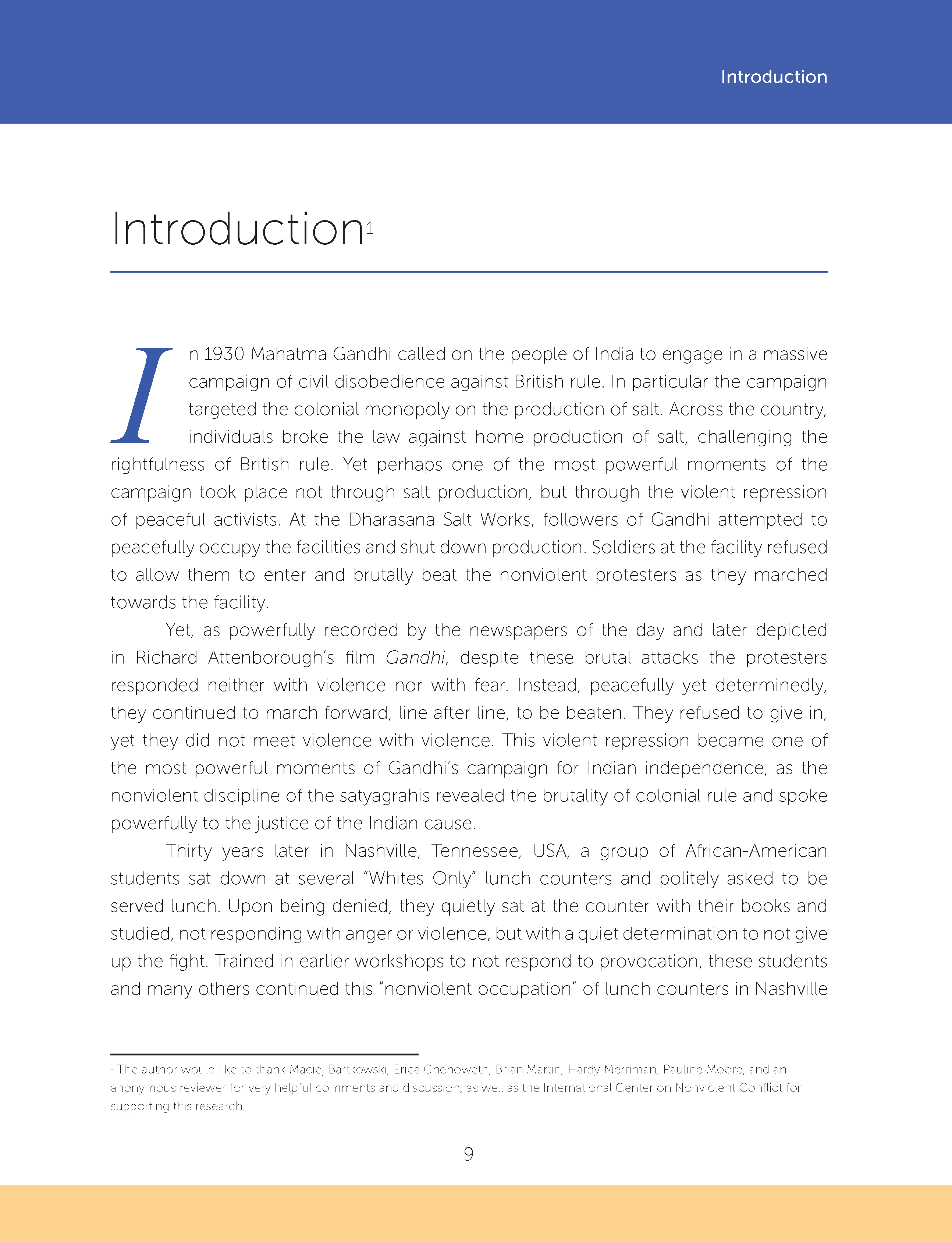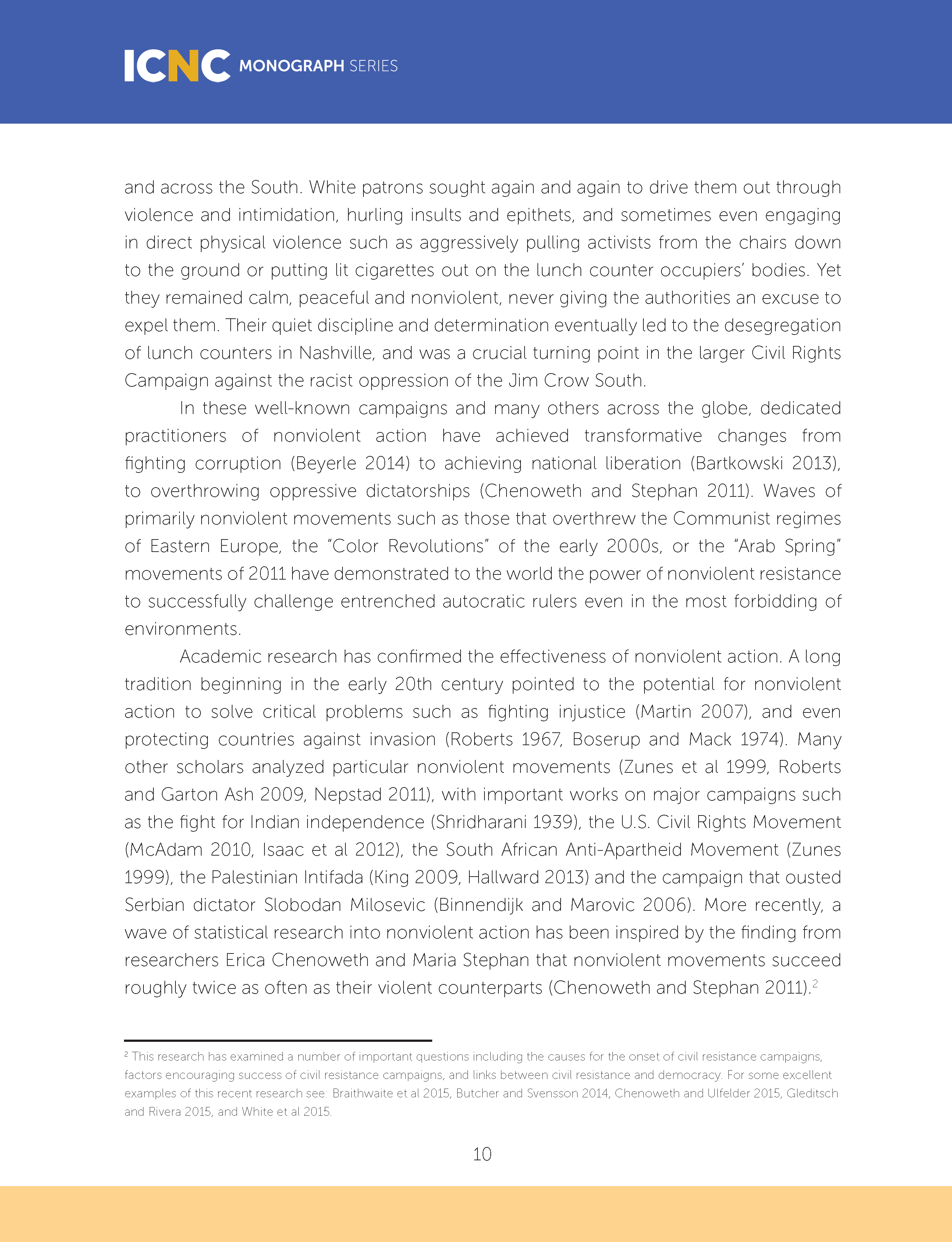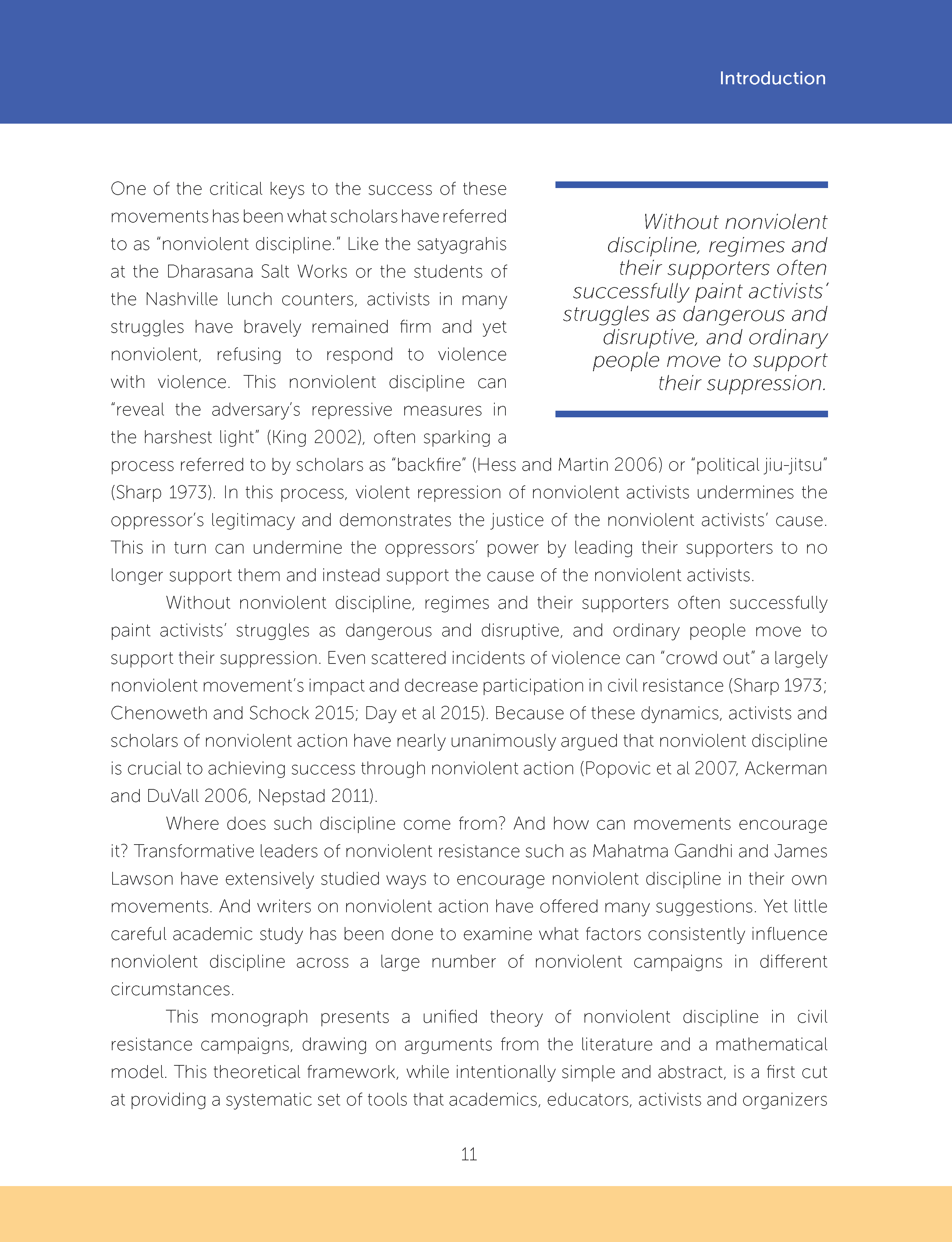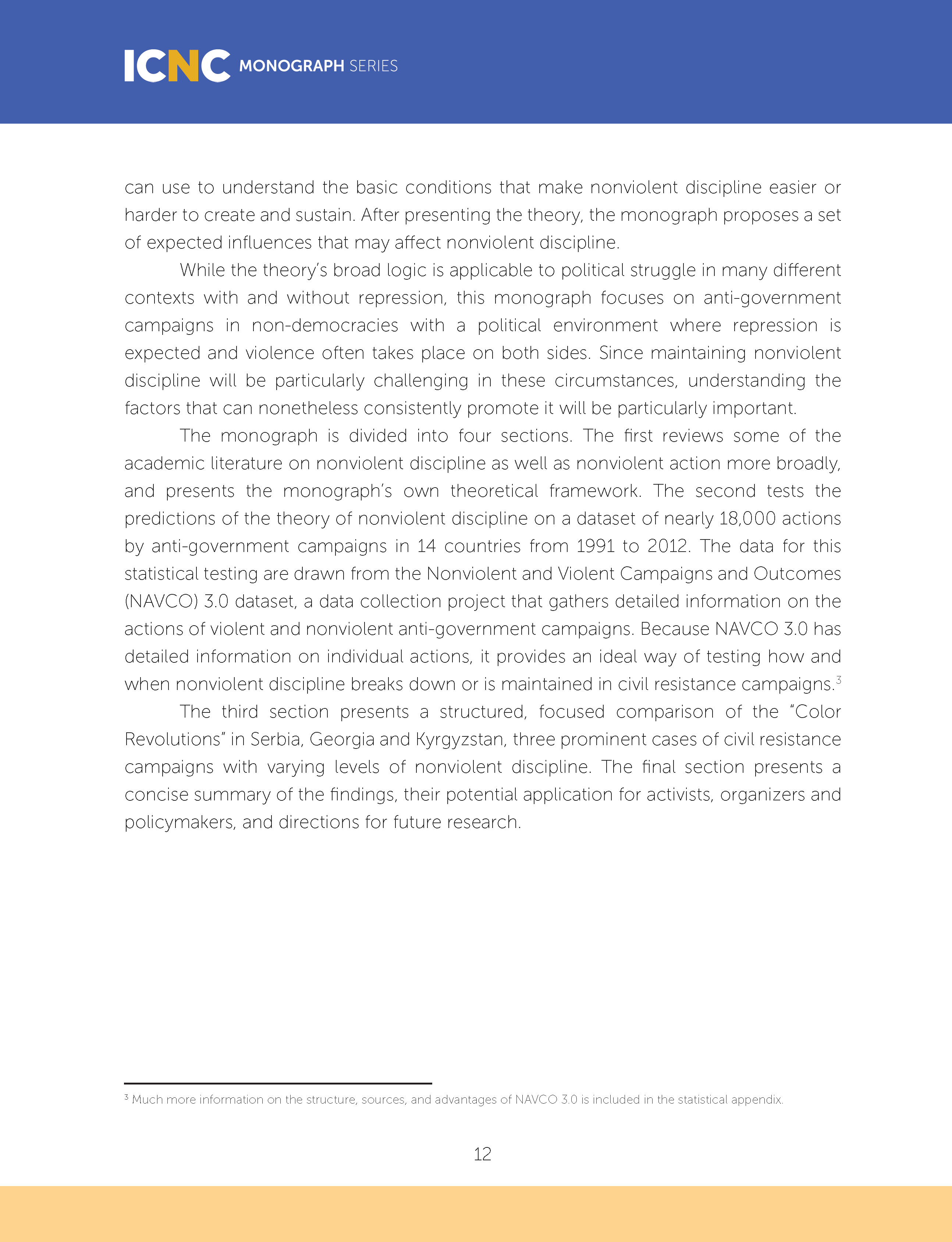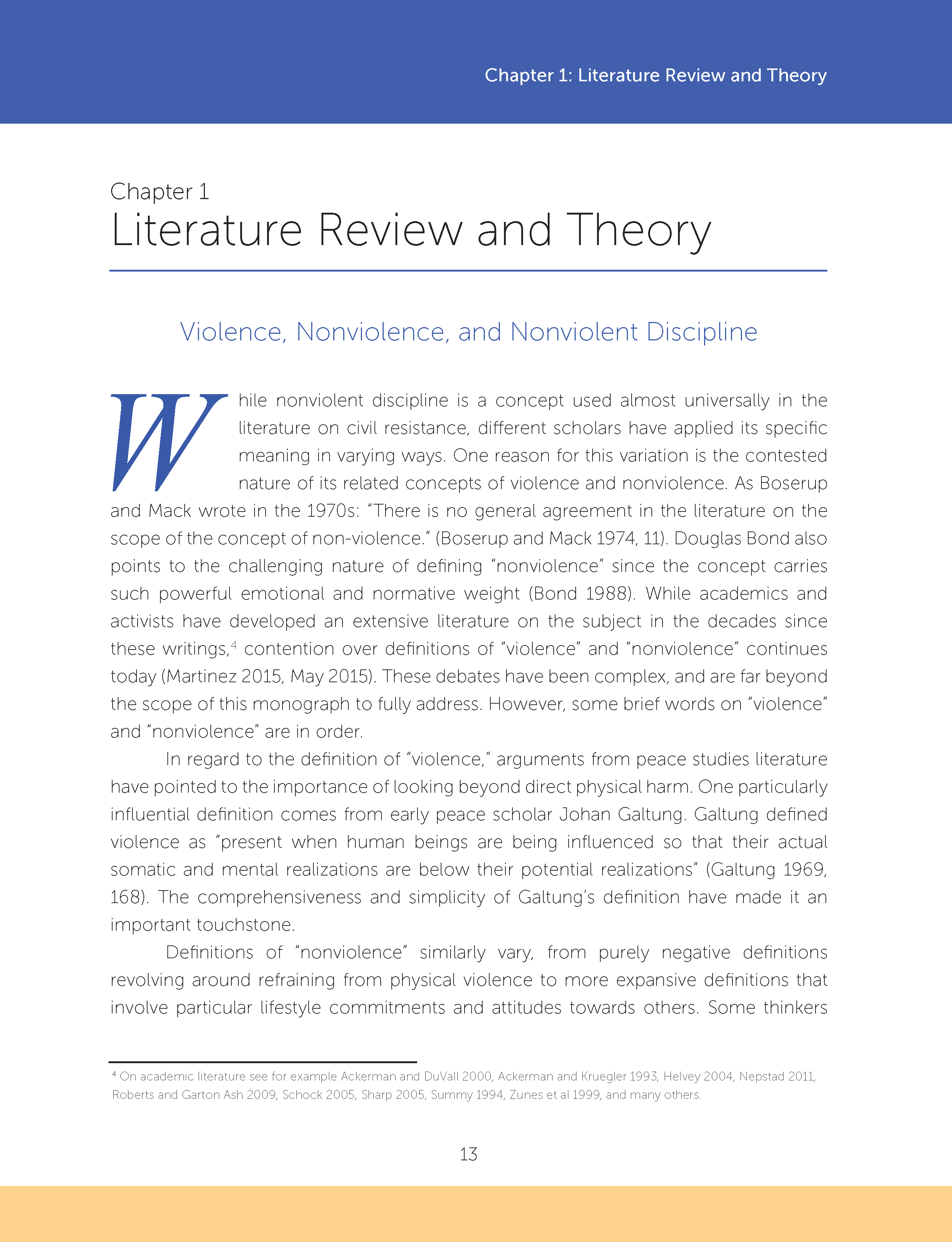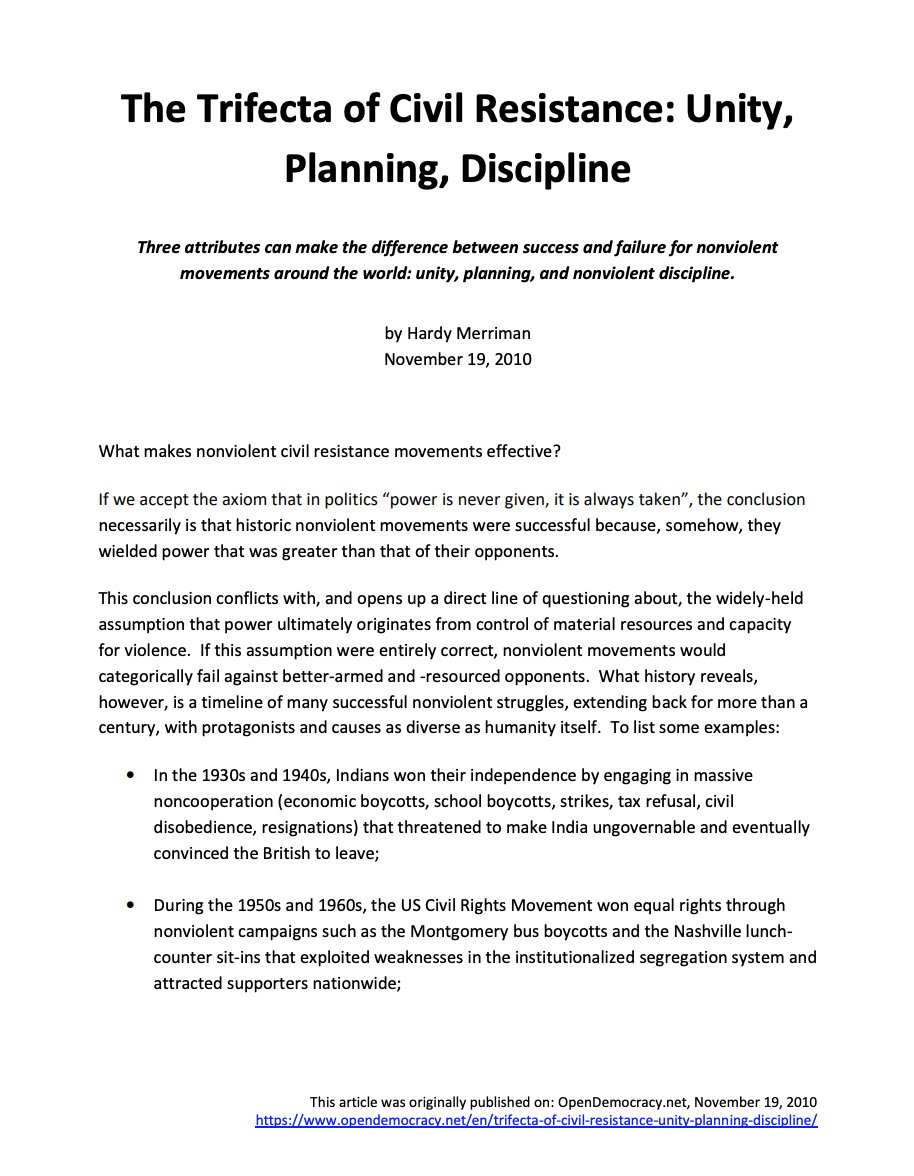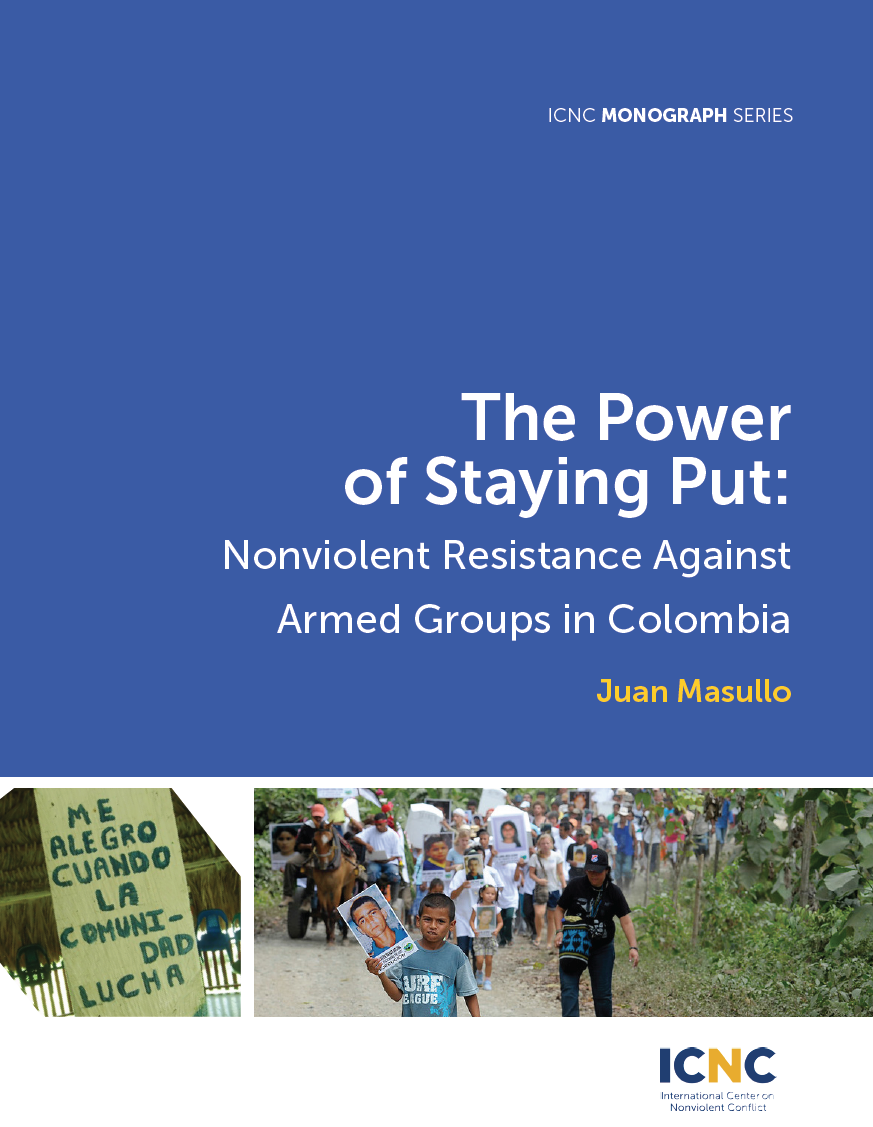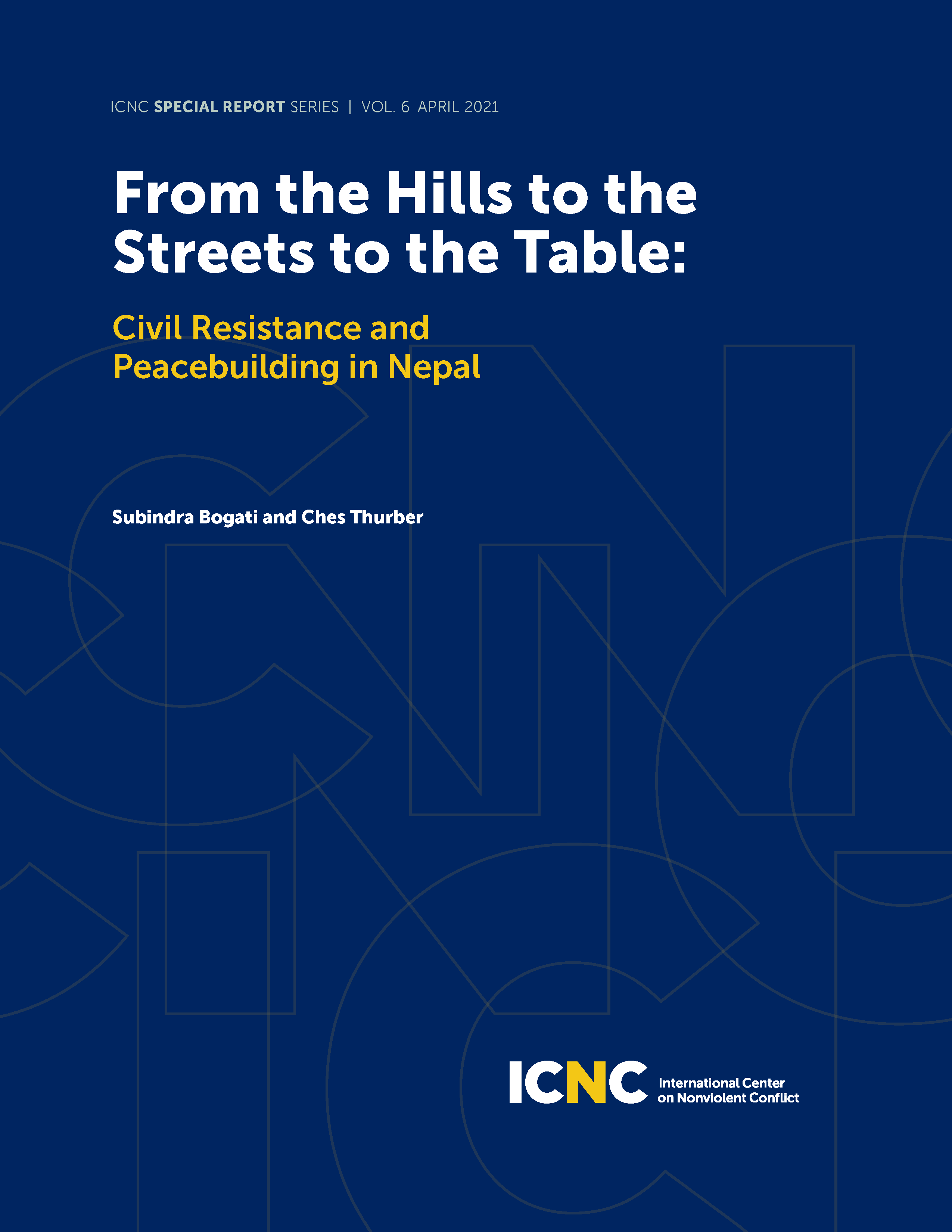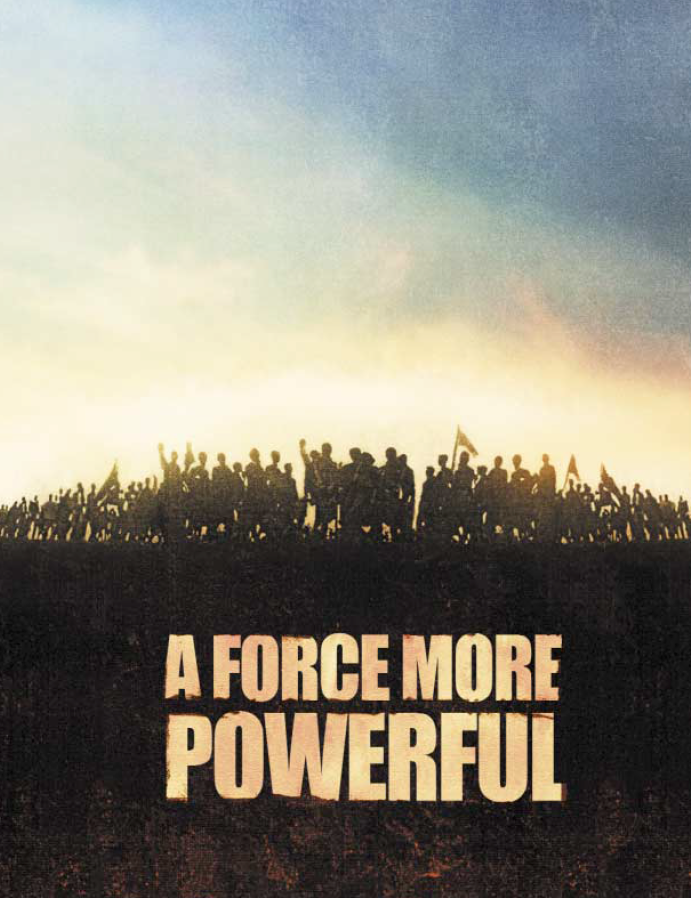Making or Breaking Nonviolent Discipline in Civil Resistance Movements
Purchase a hard copy via Amazon
How can we understand when nonviolent movements will stay nonviolent? When are they likely to break down into violence? In this monograph, Jonathan Pinckney analyzes both what promotes and undermines nonviolent discipline in civil resistance movements. Combining quantitative research on thousands of nonviolent and violent actions with a detailed comparison of three influential cases of civil resistance during the “Color Revolutions,” Pinckney’s study provides important lessons for activists and organizers on the front lines, as well as for practitioners whose work may impact the outcomes of nonviolent struggles. We learn how repression consistently induces violence, as do government concessions. On the flip side, we see that structuring a campaign in an inclusive and non-hierarchical way is conducive to greater nonviolent discipline.
About the Author
 Jonathan Pinckney is a Ph.D. candidate at the Korbel School in the fields of International Relations and Comparative Politics and a research fellow at the Sie Cheou-Kang Center for International Security and Diplomacy, where he supervises the Nonviolent and Violent Campaigns and Outcomes (NAVCO) 3.0 data project. His research centers on extra-institutional political contention in non-democracies. His dissertation examines the role of nonviolent civil resistance in democratization processes. Jonathan’s work has been published in the Journal of Peace Research, Foreign Policy’s Democracy Lab, and the edited volumeWielding Nonviolence in the Midst of Violence Jonathan received his BA in International A airs from Gordon College in Wenham, Massachusetts, graduating summa cum laude with special honors, and was a 2012 recipient of the Korbel School’s Sie Fellowship and a 2016 recipient of the International Center on Nonviolent Confl ict’s PhD fellowship. Prior to entering graduate school Jonathan worked for study abroad programs in Egypt and India and helped found BIRDS International, an NGO addressing issues related to rural poverty in South India. Jonathan lives in Denver with his partner and enjoys road biking and camping.
Jonathan Pinckney is a Ph.D. candidate at the Korbel School in the fields of International Relations and Comparative Politics and a research fellow at the Sie Cheou-Kang Center for International Security and Diplomacy, where he supervises the Nonviolent and Violent Campaigns and Outcomes (NAVCO) 3.0 data project. His research centers on extra-institutional political contention in non-democracies. His dissertation examines the role of nonviolent civil resistance in democratization processes. Jonathan’s work has been published in the Journal of Peace Research, Foreign Policy’s Democracy Lab, and the edited volumeWielding Nonviolence in the Midst of Violence Jonathan received his BA in International A airs from Gordon College in Wenham, Massachusetts, graduating summa cum laude with special honors, and was a 2012 recipient of the Korbel School’s Sie Fellowship and a 2016 recipient of the International Center on Nonviolent Confl ict’s PhD fellowship. Prior to entering graduate school Jonathan worked for study abroad programs in Egypt and India and helped found BIRDS International, an NGO addressing issues related to rural poverty in South India. Jonathan lives in Denver with his partner and enjoys road biking and camping.
ICNC Monograph Series
Series editor: Maciej Bartkowski
Volume editor: Amber French
Design: David Reinbold

